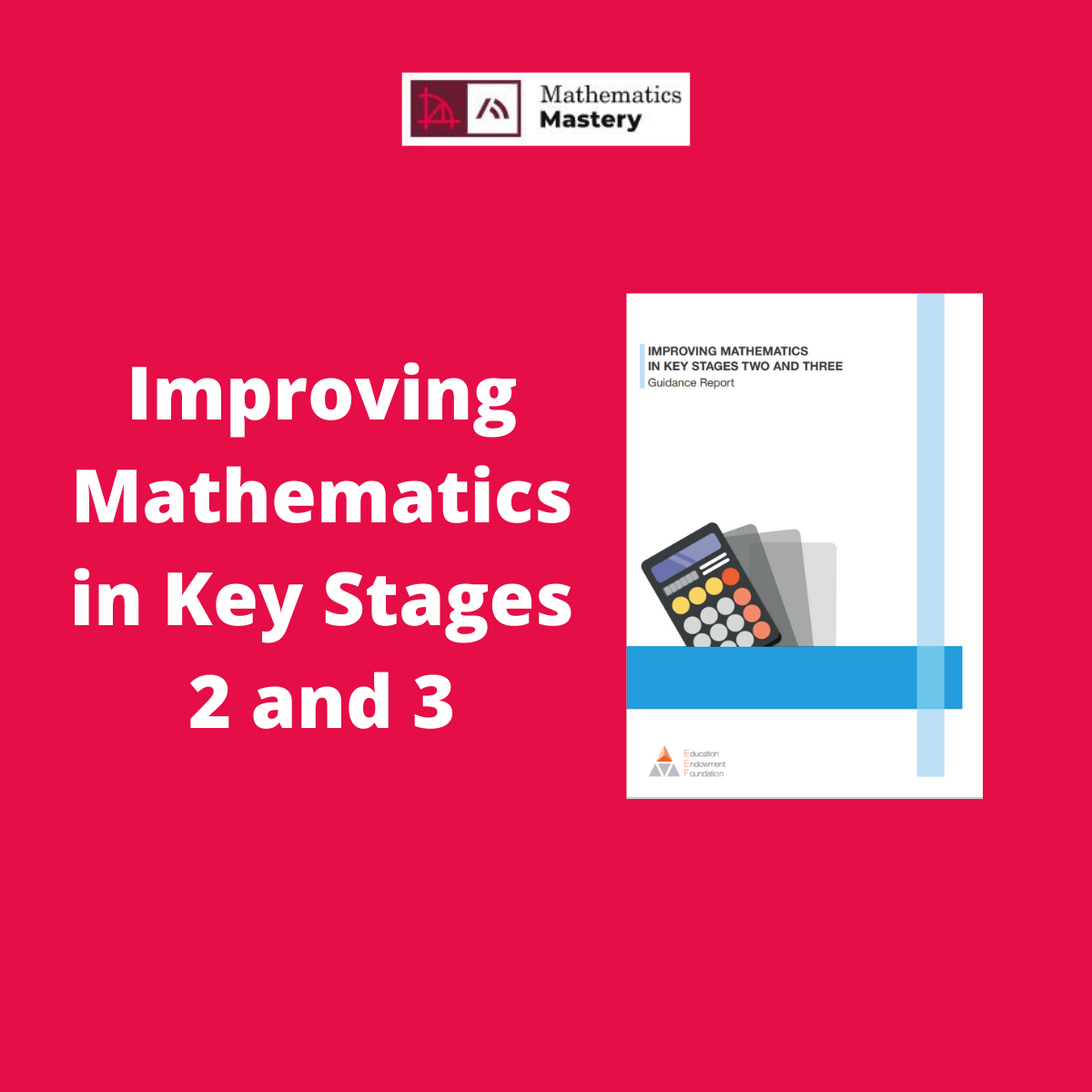
Suzanne Keys, Partnerships Manager at Ark Curriculum Plus, reflects on how the EEF (Education Endowment Foundation) guidance report's recommendations for improving maths at KS2 and KS3 are reflected in the Mathematics Mastery programme.
In my role I am lucky enough to speak to maths teachers and leaders everyday, all of whom are passionate about improving outcomes for their students.
I often get asked ‘which strategies work best?’, and so I was delighted to read the EEF’s guidance report Improving Mathematics in Key Stages Two and Three, as they greatly complement our philosophy and approach to maths education.
The report includes eight tangible recommendations that focus on improving the quality of teaching, which schools can use to make a significant difference to pupil’s learning.
I’d like to dive into each of these recommendations, explore what they mean, and how our programmes promote these evidence-informed strategies.
We can all agree that assessment is essential in helping us to understand what pupils do and do not know. We must then use this to help us understand why pupils might be getting things wrong, so that we can adapt our teaching accordingly.
Our curriculum is littered with questions, prompts and activities to promote ongoing formative assessment in each lesson, allowing teachers to identify the areas that pupils are confident with, and those that need more support. We also equip our teachers with a solid understanding of the common misconceptions pupils have in advance, allowing teachers to address these misconceptions before they arise.
We could not agree more on the importance of using manipulatives (physical objects used to teach maths like counters and cubes) and representations to help pupils engage with mathematical ideas.
We have embedded the use of multiple representations (including manipulatives) into every Mathematics Mastery lesson, and we allow connections to develop between different representations so pupils can select and understand the most efficient method depending on the problem they are solving. The report also emphasises the importance of using manipulatives appropriately to ensure meaningful impact, which we support through bitesize professional development videos.
This is embodied in our very definition of Mastery, in that ‘you know you’ve mastered something in mathematics, when you can apply it to a totally new problem in an unfamiliar situation.’
Our lessons promote, use and compare a variety of problem solving strategies, and regular opportunities are provided for pupils to solve problems independently, communicate their ideas and refine their mathematical thinking. Pupils are also encouraged to work in pairs/groups to develop confidence in problem solving skills, strategies and language frames.
Making connections is important in many aspects of life (a lesson that Covid has hammered home) and the maths classroom is no exception. Pupils need to understand the many connections between mathematical facts, procedures and concepts.
Our programme is cumulative, meaning we are always building on, and making connections to, prior knowledge. We allow adequate time on each topic to establish connections, and our carefully ordered units provide a curriculum that builds fluent and connected understanding, rather than offering blocks of siloed learning.
It’s great to see this focus on encouraging enjoyment in maths for all children, as well as supporting them to take responsibility for their own learning.
All of our lessons include opportunities for pupils to solve problems independently and collaboratively, with an explicit focus on pupil-to-pupil ‘talk tasks’. These allow pupils to verbalise their thinking, ask questions and challenge ideas, developing confidence and sparking further curiosity. Our partners often tell us these are the most enjoyed parts of our lessons!
Carefully designed tasks and resources that both support and stretch learners are essential in the toolbox of any maths teacher. We hear from our partners that finding the time to carefully map such tasks out is another ask entirely.
Our programmes offer a variety of ‘low-threshold, high-ceiling’ tasks, enabling challenge within our ‘one curriculum for all’ approach. With every lesson carefully mapped out, teachers on our programmes have more time to consider appropriate scaffolds and constraints, offering a more personalised learning journey for every pupil.
We think this is so important – your interventions must speak the same language as your main curriculum to support a smooth transition between the two.
Our intervention resources offer guidance and tasks to support pupils with gaps in their understanding to access the full curriculum. This ensures knowledge gaps are addressed as and when they arise, reducing the risk of larger gaps emerging later down the line.
More and more schools are talking to us about the challenge of transition and the importance of getting this right, especially following the hardest transition we’ve seen in a generation as a result of the pandemic.
Our curriculum has been designed as part of 12-year journey supporting curricular coherence across key stages, and our KS3 intervention resources help to address any gaps whilst ensuring students keep up with the main class curriculum.
Perhaps you can select three of these strategies that you want to focus on for this term?
We’d love to hear from you if you’d like to learn more about how our programmes can help you to implement these recommendations.
Contact us at partnerships@arkcurriculumplus.org.uk.
Related Posts